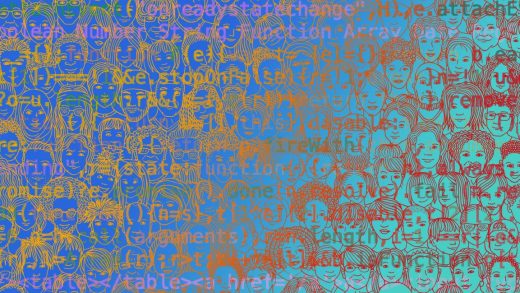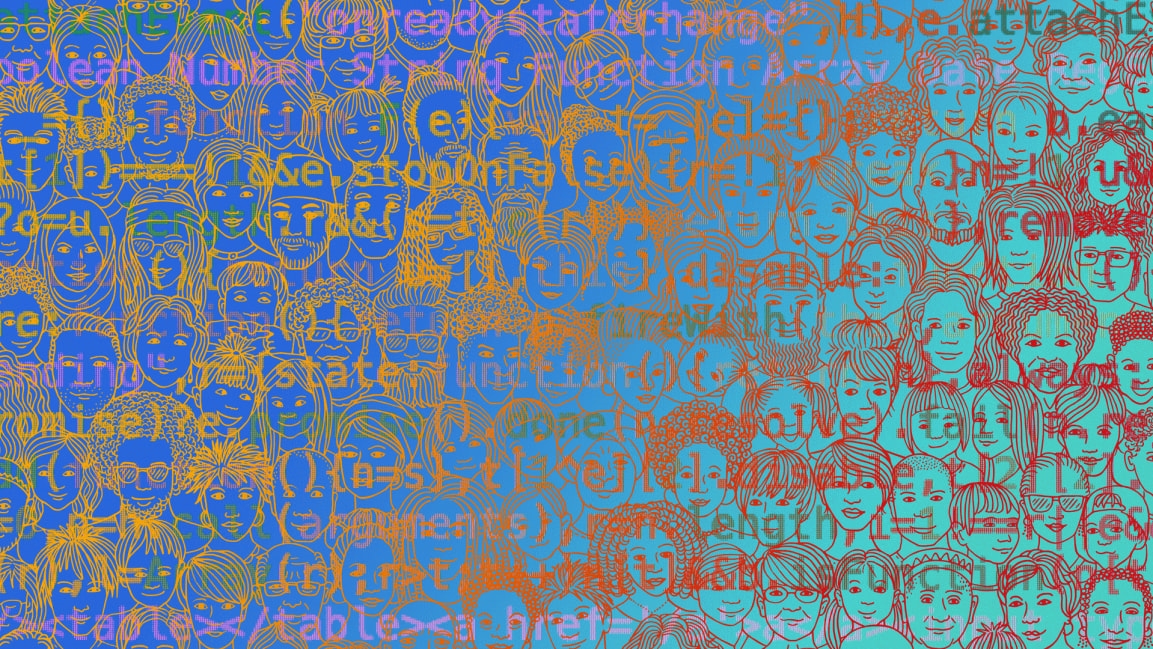4 ways the coder community can help fix its diversity problem
The business results are clear. Diverse and inclusive cultures provide companies with a competitive edge over their peers and deliver better results.
In one study, the most diverse firms averaged operating profit margins of 12% versus 8% for the least diverse firms, and their stock performance was also better. Also, a Boston Consulting Group study of more than 1,700 companies shows that diversity boosts innovation by expanding the range of a company’s ideas and options, leading to better financial performance.
Diversity can also strengthen resilience—the capacity to recover from difficulties—because diversity includes a larger canvas of viewpoints, experiences, and skill sets. I see the world of open source software development embodying the very essence of what I call diversity-powered resilience, which means that the more diverse something is, the more resilient it will be.
Open source, by design, welcomes diversity because anyone can contribute to software code from anywhere in the world. Teams are often geographically distributed, which leads to more diversity, and that correlates with positive results to team output, research shows.
We witnessed open source’s diversity-powered resilience in action last year. As the pandemic bore down, GitHub, the largest open source developer platform with more than 50 million developers, found the developer activity remained consistent—or even increased. If the pandemic reduced developer activity in one region more than another, at one time or another, the geographic diversity of the community may have mitigated the impact. To some extent, that happens every year as different regions go more quiet than others for holidays, such as Christmas in the Western world and Lunar New Year in China.
In the past three decades, open source has moved from the fringe of software development to the core, and it has transformed how software is built and made. A full 90% of IT leaders use enterprise open source, research shows. By some estimates, open source comprises no less than 70% of commercial code bases. Our lives are touched by open source in myriad ways. Netflix, Mac OS, the Nintendo Switch, Panasonic TVs, and WhatsApp are just a few of the popular products built on or using open source. With the increasing criticality of open source to all technology innovation, it is safe to say that diversity, equity, and inclusion in open source will positively impact the entire technology industry.
What’s Needed, What’s Possible
But there are challenges and problems in software development that are real threats to diversity in technology and to its innovative power.
The software developer community, which includes open source, is still heavily white, about 70%, leaving people of color vastly underrepresented. Almost 92% of professional coders are male, the global 2020 StackOverflow survey shows. The same researchers who found that diversity in open source improves team output, also note that its “hacker culture tends to be . . . unfriendly to women” and that “active discrimination” toward women leads to women doubting their professional capabilities when they shouldn’t.
This needs to change. Software development, which impacts companies and organizations worldwide, will only be stronger if it is inclusive of more expertise, viewpoints, and life experiences. The watershed events of last year underscore what’s needed—and what’s possible.
First, the COVID-19 pandemic posed an unprecedented global threat. Every innovative mind and solution was needed to help move vaccine technology forward, and to protect people while that unfolded. The open source community was pivotal on both fronts, launching a myriad of vital and life saving initiatives to battle the pandemic via such things as virus exposure notification, ventilator design, and better tools for diagnosis.
Also last year—and continuing on—social justice protests rose to the forefront to expose grave societal shortcomings. As an outgrowth of this, the Cloud Native Computing Foundation (CNCF) took part in jointly announcing the Inclusive Naming Initiative (INI) to help remove harmful, racist, and unclear language in software development, including terms such as whitelist, blacklist, master, slave, and others.
Change from the Grassroots
INI was organized as a grassroots movement because too many people had been waiting on the sidelines for change, second guessing whether their concerns with racist terminology were valid.
Today, with just this one initiative, we have established proof that there is a critical mass of people in technology willing to take a stance and, more importantly, to do the work. Companies and open source projects and standards bodies have been successful in pushing for this change.
The Linux Foundation, the nonprofit parent of CNCF, has announced the Software Developer Diversity and Inclusion (SDDI) project. SDDI will explore, evaluate, and promote best practices from research and industry to increase diversity and inclusion in all of software engineering.
Individual developers can do their part, too:
Software engineering touches practically all parts of our lives today, from how we communicate to how we consume. It impacts all companies, large and small, nonprofits, education, global organizations, and science. We all need to educate ourselves about the costs—both bottomline and societal—of not being diverse, of not being inclusive, and be ready to do something about it.
Open source transformed technology and INI and SDDI are more examples of how the community can corral and carry an industry forward. Because diversity is a natural extension of open source culture, the community should lead in making software development more resilient and powerful for the benefit of everyone.
Priyanka Sharma is the general manager of the Cloud Native Computing Foundation. Its mission is to make cloud native computing ubiquitous.
(31)



